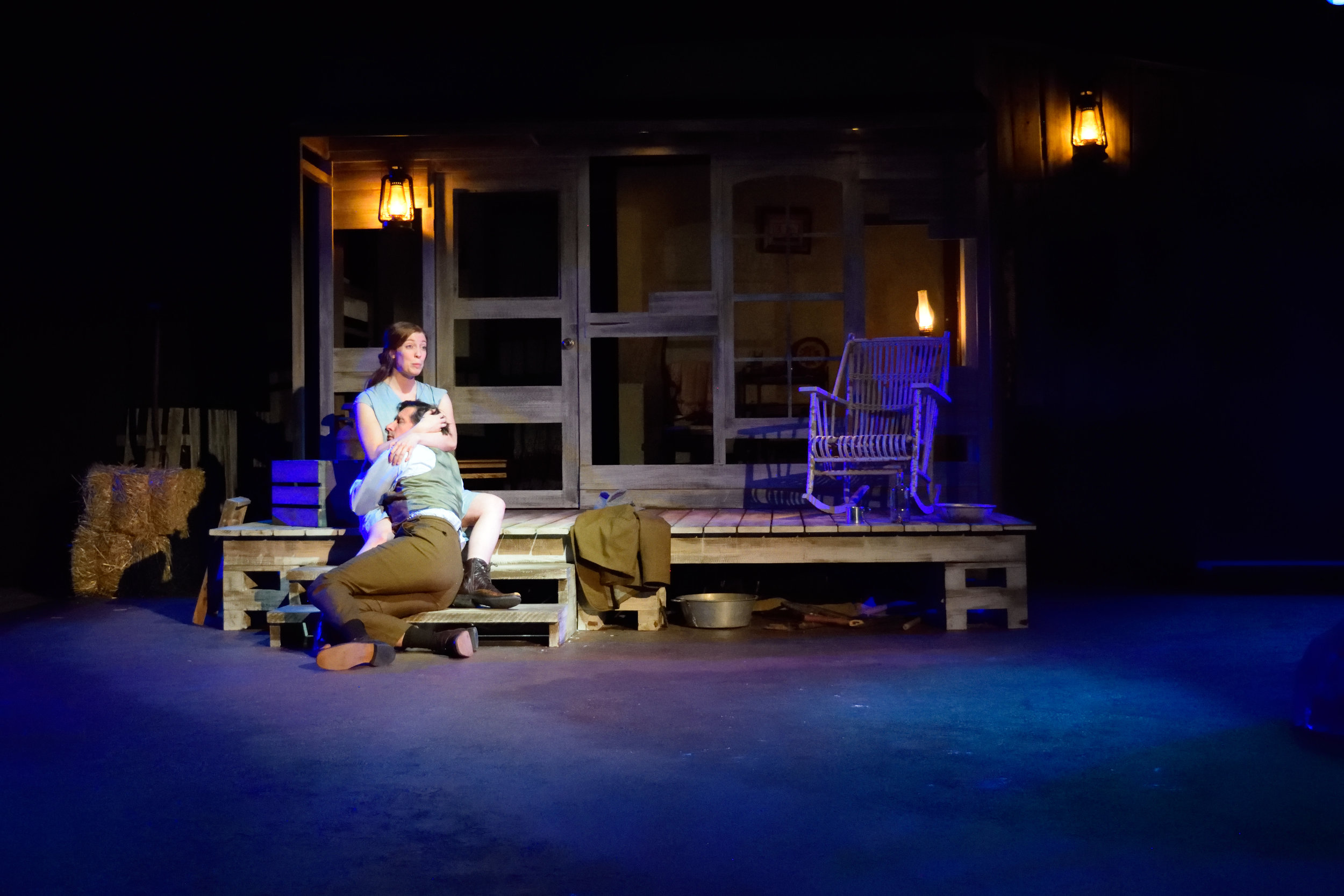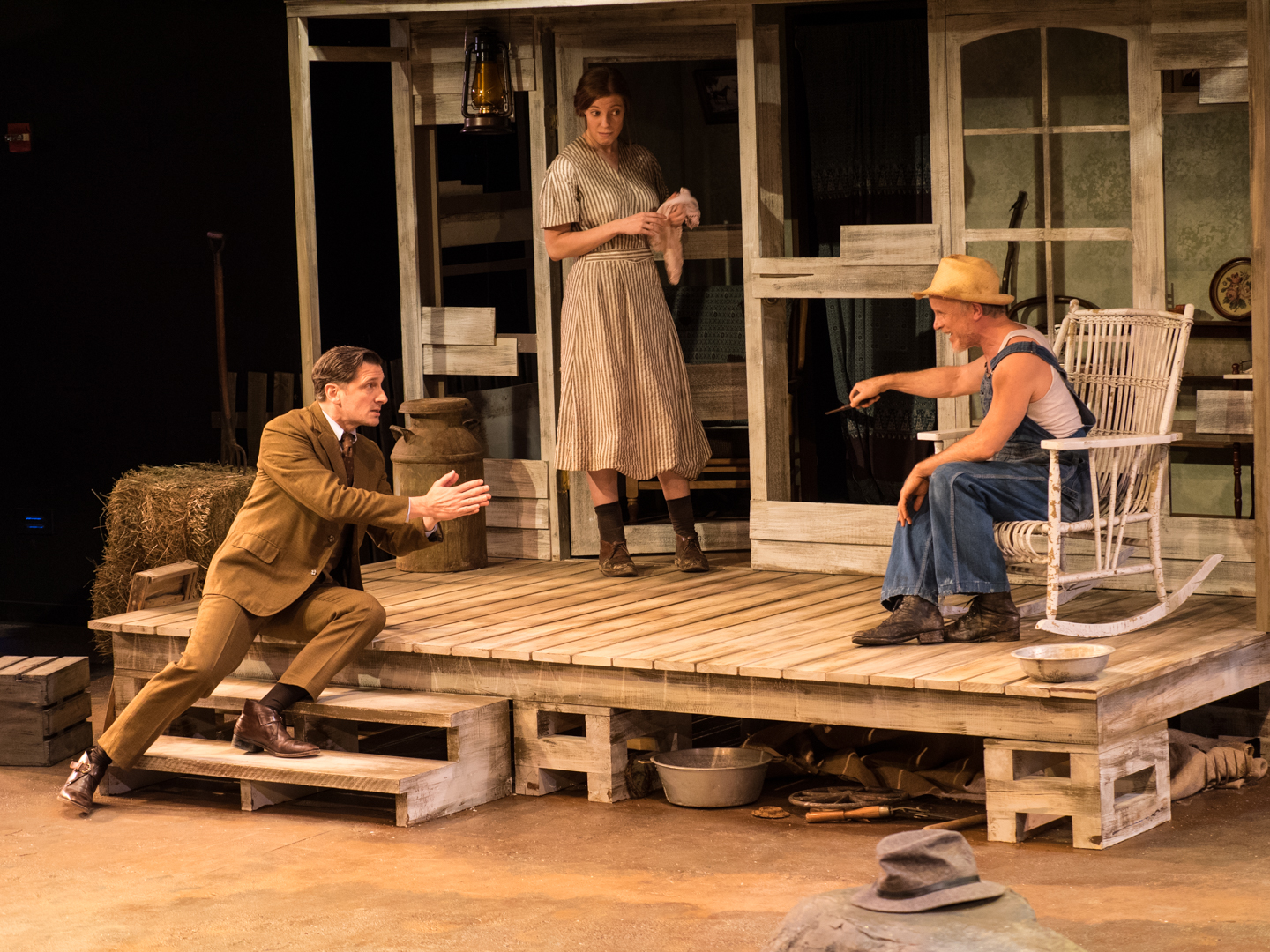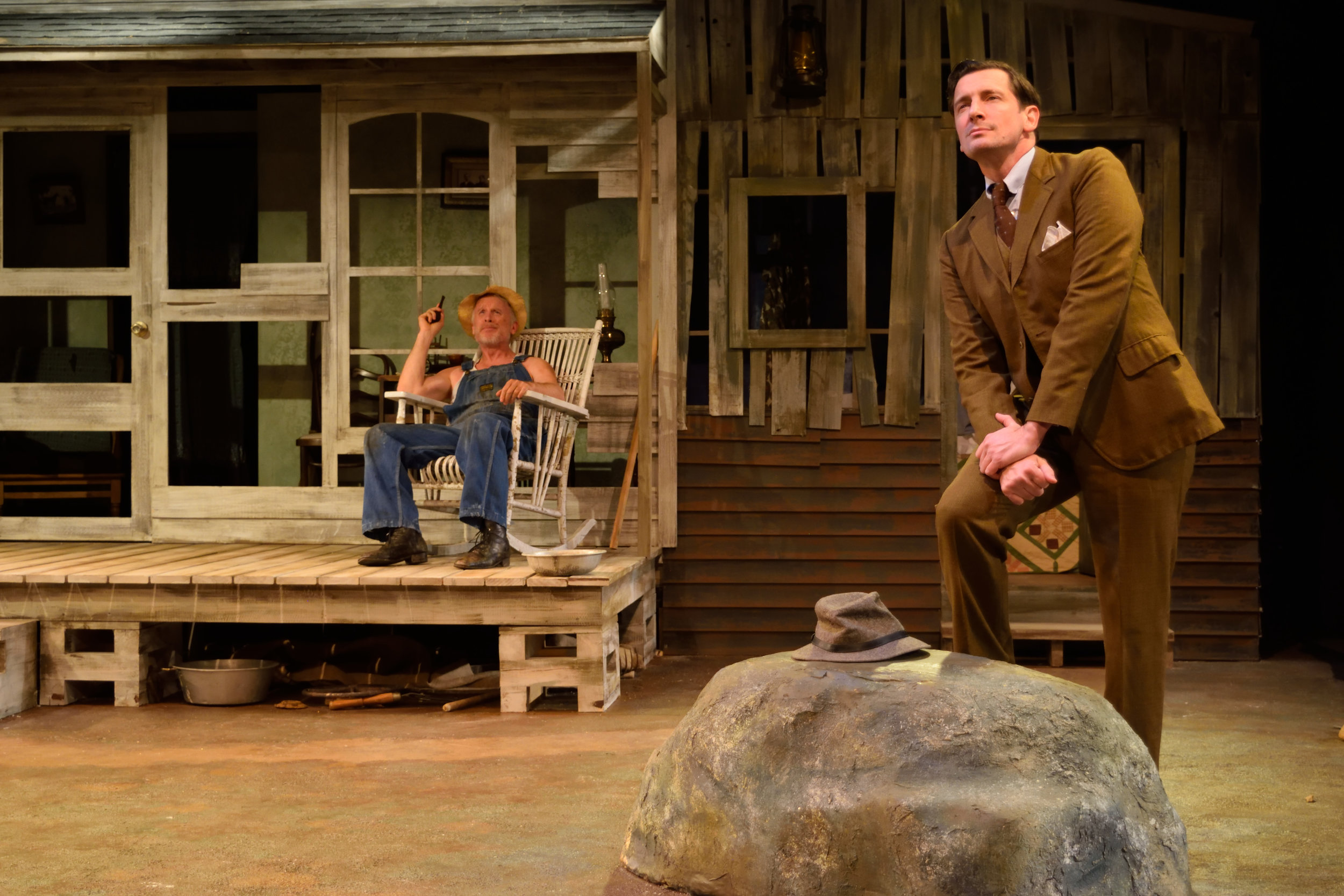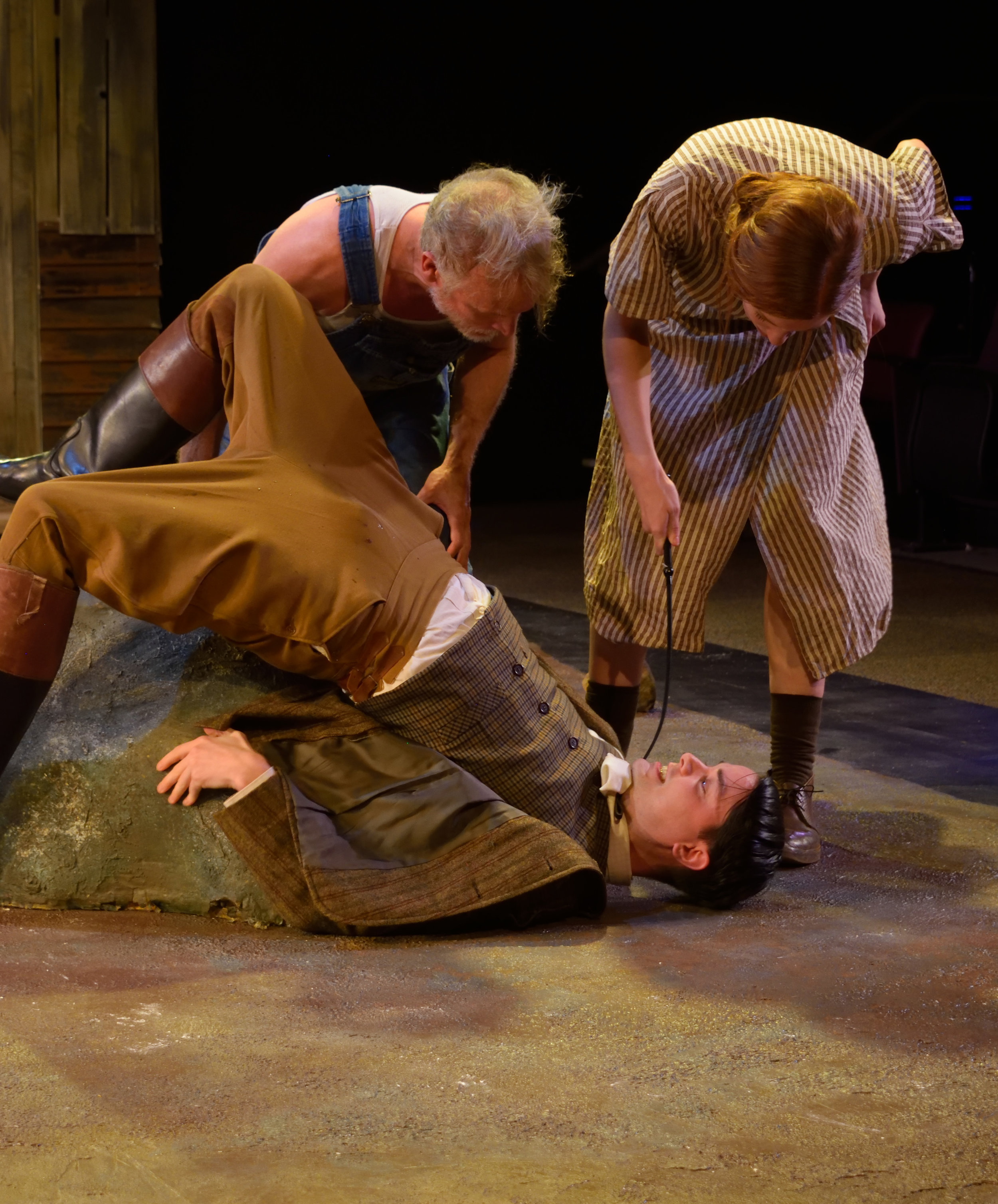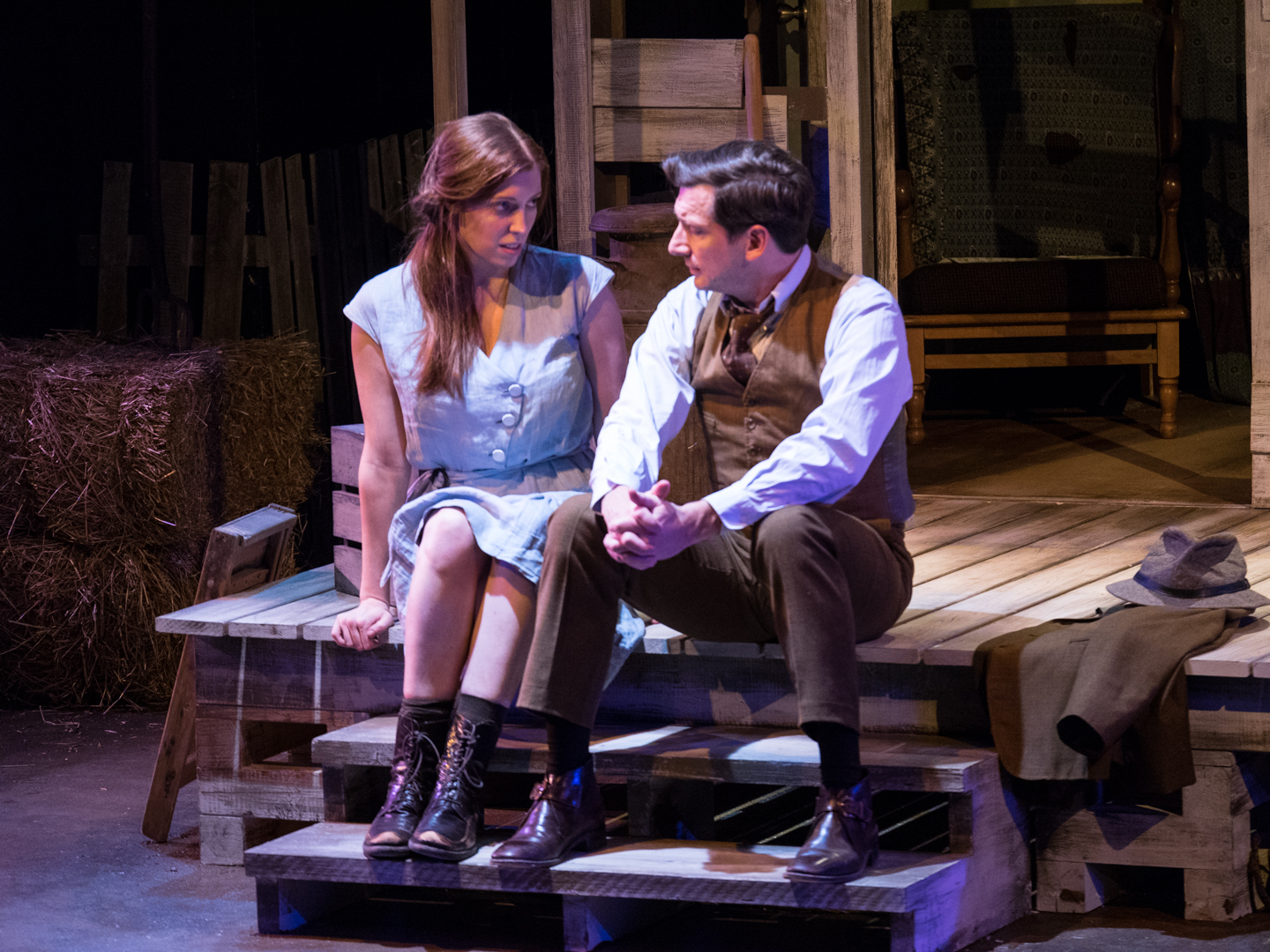“The production as a whole is almost flawless.”
“Director Joseph Discher does an expert job of directing these intimate scenes...”
By Eugene O'Neill
Directed by Joseph Discher
Scenic Design by Emily Nichols
Lighting Design by Christopher Bell
Costume Design by Collette Benoit
Sound Design by Joel Abbott
Production Stage Manager - Corin Killins*
THE CAST
Thomas Royce Daniels | T. Stedman Harder
Michael Hinton | Mike Hogan
Elise Hudson* | Josie Hogan
Anthony Marble* | James Tyrone, Jr.
Conan McCarty* | Phil Hogan
*member Actor's Equity
IN THE BAGGAGE COACH AHEAD
(Gussie L. Davis/Stephen Dankner)
On a dark stormy night as the train rattled on,
All the passengers had gone to bed.
Except one young man with a babe in his arms,
Who sat there with a bowed down head.
The innocent one began crying just then,
As though its poor heart would break.
One angry man said "Make that child stop its noise,
For it's keeping all of us awake."
"Put it out" said another, "Don't keep it in here-
We've paid for our berths and want rest."
But never a word said the man with the child
As he fondled it close to his breast.
"Where is it's mother, go take it to her"
This a lady then softly said.
"I wish that I could," was the man's sad reply,
"But she's dead in the coach ahead."
While the train rolled onward, a husband sat in tears,
Thinking of the happiness of just a few short years.
For baby's face brings pictures of a cherished hope
that's dead.
But baby's cries can't waken her in the baggage coach
ahead...
A Nobel Prize-winner for Literature, Eugene O'Neill is considered one of the greatest American dramatists. A Long Day's Journey Into Night, The Iceman Cometh, and A Moon for the Misbegotten are perhaps his most renowned plays; and Moon was O'Neill's last play, which he struggled to finish before losing his ability to write. His work was often autobiographical and the character of Jim Tyrone (from both Long Day's Journey and Moon...) is largely based on O'Neill's own brother, Jamie. The first production of Moon was actually a failure, and it was decades before the play came to be considered one of his best works.
Bringing a production of Moon to the stage in a three-week rehearsal period is a big challenge (for both actor and director), but it is one that I am very glad I accepted. To work on such a play is an honor and a great journey--like life--filled with joy, struggles, and everything in between. Moon is a complex work that requires a great amount of realism and truth. It is multi-layered, linguistically rich, painful in its longings, cynical and romantic, harsh and humorous, dark, deep, and intimately human. It is not seen nearly enough on the stage considering all the crucial themes it explores: love and loss, death, regret, sacrifice, forgiveness and redemption, and especially pretense vs. reality. The manner in which O'Neill brings these themes to life through his characters is where the greatest beauty in the play lies--for we can all identify with the notion of what we hide and what we let show.
FROM EUGENE O'NEILL
"There is no present or future--only the past happening over and over again--now."
"We can kid the world but we can' fool ourselves, like most people, no matter what we do--nor escape ourselves no matter where we run away."
"None of us can help the things life has done to us. They're done before you realize it, and once they're done they make you do other things until at last everything comes between you and what you'd like to be, and you've lost your true self forever."
"Man is born broken. He lives by mending. The Grace of God is glue."
"Truth, in the theatre as in life, is eternally difficult, just as easy is the everlasting lie."
